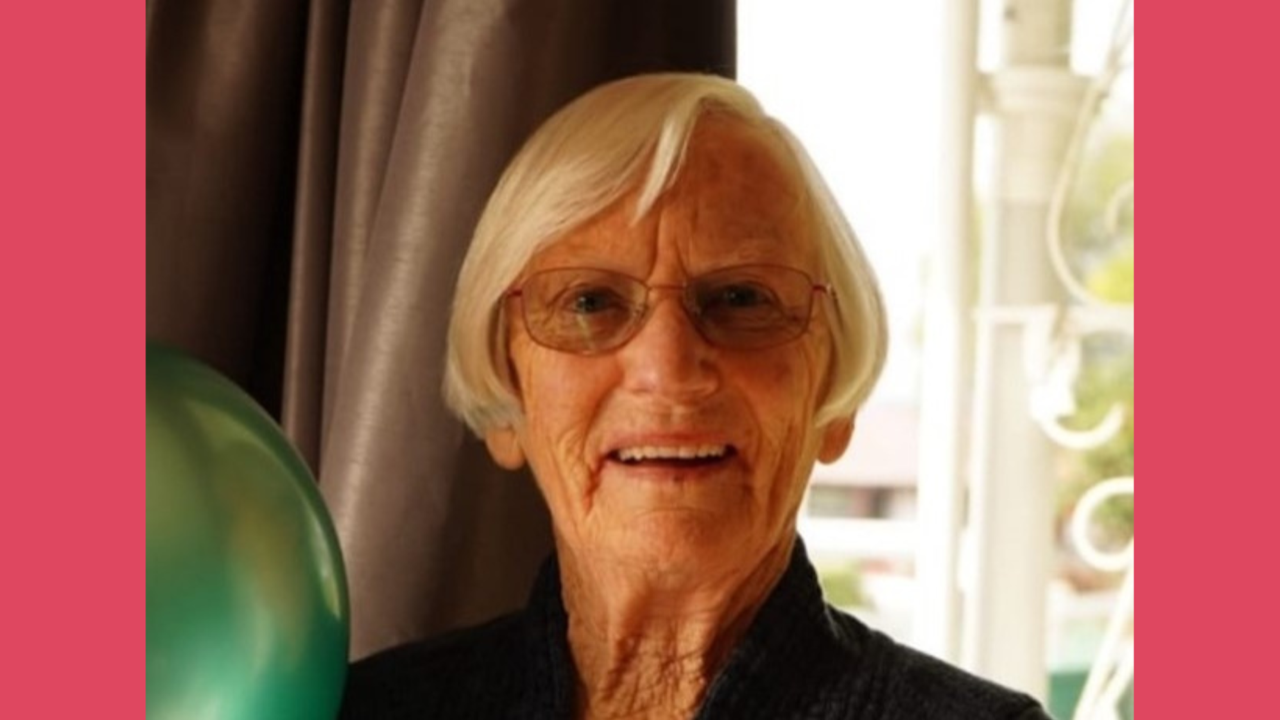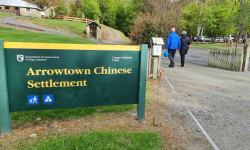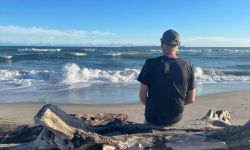
From being a missionary nurse in Nepal, Raema returned to New Zealand with TB of the kidney in 1979. She recovered, and later became the 2nd sole charge woman minister in a New Zealand Baptist church.
Born in the tiny settlement of Outram, south of Mosgiel, Raema was an only girl among four brothers; her father worked for the local council on roads and as a storeman. Neither he nor their mother spoke of God, but their mother sent them to Sunday School and Bible Class, ‘mostly to get us out her hair,’ Raema thinks. But Raema saw things differently from her parents: ‘I always had an inkling that there was something more to life, a God-feeling.’
Training as a Nurse and then Missionary
When Raema finished two years at Mosgiel District High School, her mother told her to leave school, find a job and start earning. So she did. At 15 she became a domestic in a maternity hospital in Dunedin, and after six months shifted to nurse aiding. Looking back, she felt God led her into it. She worked in two hospitals before doing general nursing training. And that felt good too. ‘In my heart I again felt I was going the right direction.’
At this stage Raema did not yet ‘know God’, her conversion came later, while doing nurse training in Oamaru. Among her classmates, some were devout Christians and some drank and hung out in rough company at the port. Lonely, Raema fitted in neither group until one night a Christian girl found her in tears in her room and led her to the Lord.
‘When I came to know Jesus, I immediately knew in my heart I was to be a missionary. I finished training and became a staff nurse. I worked in Whakatane for a year and then went to Bible College [Laidlaw College]. I was apprehensive, but I made wonderful friends there.’ Experiences included a woman speaker saying, ‘Don’t go to Nepal unless you are called by God. It’s too difficult.’ Raema immediately felt called! She studied midwifery, and then applied to the Nepal Evangelistic Band [International Nepal Fellowship] and left for Nepal in 1964.
Life in Nepal
Raema was somewhat ambivalent about her work. She commented: ‘I’m not a born nurse and I didn’t understand some of my colleagues from other countries. But I loved the Nepalis. I had to learn things about myself: that I could not do stuff on my own; that I needed to listen; that I could be very wrong; that God was always there for me, even when I felt he wasn’t.’
Once when Raema worked at a tiny far-flung clinic at Baglung (she had to walk two days every time she went there or back to the base at the Shining Hospital in Pokhara town), she had to house-share with a woman missionary she found very difficult. ‘I had to pray all the time every day,’ she says. ‘She was so different from me. She could not cook. She was impractical. I learned that God could help. I even found we could pray together. I still write to her decades later.’
Although young at the start, Raema built up a wide range of nursing and administration skills. At the isolated Baglung clinic she was a sister in leprosy and maternity care. At different times during the next 15 years she was in charge of outpatients at the small hospital, a general nurse, a matron, and an anaesthetist/doctor (when there was no doctor available, doing minor operations like fractures and sutures). She also noticed when new services were required and initiated them, starting a maternal and child welfare clinic in the bazaar, and a TB clinic in a tent.
It was against the law to teach Christianity, but Raema was able to share the good news when she was at Baglung. She mourned the community’s ignorance, that people died who could have been saved with simple treatments. For example, children dying from burns. At times she went off duty crying. ‘But even simple gentian violet on burns and putting the child in the sun to dry could aid the healing’.
Raema muses, ‘Nepal was amazing. At times I could feel the Lord’s presence as I sat on the cliff above the churning Sheti River near the Shining Hospital. I felt the Lord really speak to me. He gave so much peace, love and correction.’
Back to NZ
In 1979 Raema contracted TB of the kidney and hurried home to New Zealand. She was sick and discouraged, but expected to return soon to Nepal. But her discouragement turned to depression. The mission society did their best but Raema needed more help in her unhappiness. So she stayed with a friend in Christchurch and worked through things with the help of a psychologist and a doctor.
As time passed in New Zealand, it became clear that she would not be getting back to Nepal. Raema had often thought that if she had to stay in New Zealand she would like to go to Baptist College [Carey College] and study to be a deaconess. After two more years she was well enough, so after sending in an application she started in 1984.
NZ Baptist Theological College of NZ
Raema’s practical ministry assignment at College was to the Baptist City Mission in Mt Eden. She thrived there. That, along with College life was a wonderful interlude for spiritual growth. During this time she experienced an unexpected shift in direction when a tutor prompted, ‘We don’t have deaconesses these days. Why don’t you do ministry?’
Raema was stunned. Did God want women as ministers? Well, she had thought it strange and disturbing that she could preach in Nepal, but not in New Zealand. Now she asked God, ‘What am I to do?’ God seemed to indicate, ‘Be a minister.’ Again came warnings to be sure: ‘Don’t try to be a minister unless God calls you.’ Her inner being responded, ‘This is the right thing for now.’
Somebody warned her about what she’d face as a woman, ‘You’ll never get a church.’ A fellow student told her, ‘I will never believe God has called you unless you build a big, big church.’ But now Raema was ready for the plunge and the difficulties.
Principal Dr R.J. (Bob) Thompson, knowing she would be a trail-blazer, explained it would be hard, but encouraged her to keep studying. But towards the end of her second year, he suggested that she end her studies before she got too old to be attractive to churches. Raema, then in her forties, left college with no call to a church but believing God had something for her. An interim job in working with mission clients and counselling at the City Mission led after two years to becoming the church’s minister: the second woman Baptist minister in NZ.
Auckland Baptist City Mission
‘Being a pastor can be one of the most joyous, pleasing things to do,’ Raema says. ‘You see those you have nurtured beginning to understand the scriptures, see them begin to have a prayer life, find God as Master and then be baptised. Like every work, though, it has its ups and downs.’ Raema found not everyone liked her or wanted her as preacher or pastor, no matter how good she might be. But the Baptist City Mission proved an ideal first placing for her with its mixture of needy people and those who came to serve. She felt she learned from both.
‘I learned a sense of humour was essential,’ she observes. ‘And I learned to have compassion without being stupid. In the City Mission (and in later ministry), I heard heart-tugging stories which, I later found, were not true. Yet these same people could be kind and do stuff in the community. I tried to be wise without judging. And I learned that God loves everyone, no matter what their story… or even whether or not the shared story is true.
‘Then also, the people who helped at the Mission were amazing, giving up their time to cook, clean, witness and give more than I could imagine, including for missionaries. But people are people. Sometimes the best of people find fault and get angry or start rumours that are not true. I found it hard to rebuke people, but I loved listening to others and praying with them.’
Raema loved the city mission work, the people, helping disadvantaged women and children, the friends; but it was tiring too. For seven years she dealt with people with many problems, but mainly helping on a practical level.
She became restless, and at last she prayed. ‘Lord, I’m going to sit on Mission Bay beach, to wait on you. Do you want me to leave the ministry, or stay? Is there a different task for me?’ As she waited, her thoughts shifted to a compelling question. ‘Do I want to obey God, or not? If I want to obey, I must be willing to take another ministry position. I may not be intellectual enough, but if God tells me, I’ll do it. I’m his servant. If he calls me, I know he’ll work it out. And I know he is asking me to work as a minister, so I will.’
Huntly Baptist Church
A few weeks later Huntly Baptist Church requested Raema to come for a short stint with them, two or three months. She went and soon felt God call her to serve longer there. After some misunderstanding, she told the church clearly, ‘I feel called here.’ They agreed and called her. She stayed there from 1992 until she retired in 2004.
Raema’s ministry went well at Huntly. Raema and the church members started a number of programmes and saw people come to Christ, baptised and living and loving alongside one another. Like anywhere else, glitches came and the church worked through them. One problem was substantial and went for two years, with three court cases between two church families. Raema could not take sides and that was difficult at times. But she comments: ‘If you know that God has called you and is with you, you know he will get you through, even if it’s by the skin of your teeth.
Being a woman minister in a Baptist church
‘I loved being a minister. It was a real privilege to reach into families when terrible things were happening, to see people grow spiritually, come to the Lord, study God’s Word and then even able to preach. I so much enjoyed it. In both places there was an awful lot of love.
‘I have amazing friends who pray for me. Some whom I met in Nepal, others from other places I have been in New Zealand. I am so grateful for them. I was blessed to have people who worked with me, who could lovingly (sometimes otherwise) help me keep my cool or give wise counsel.’
Raema thinks she somewhat entered ministry by the back door: accepted because the churches came to know her and could see how she could serve them, rather than that they particularly thought about women in ministry unusually. At Huntly, the ‘woman issue’ was mostly dealt with at the church in the first six months, and then Raema felt established as minister. The people supported her and so did the Huntly inter-denominational ministers’ fraternal. But attending Baptist regional pastors’ meetings was hard. She would walk into the room and see only men, and they’d say ‘Hello,’ but then look as if they did not know what to do with her, a woman and older than they were.
In those days it was very patchy as to where Raema felt accepted. While the pastors’ fraternal and Baptist College were wonderfully comfortable, at some meetings she had to sit and be addressed as ‘you men’ and felt not listened to when she objected. Even some men who trained with her doubted she should be in ministry. They were kids in age compared with her, yet they discounted her. In contrast, some women thought she was too feminist.
Asked if she thought of herself as a pioneer woman leader, Raema says, ‘No. I was just an ordinary person whom God called into a place where he wanted me to be. I think of myself as fully equal among both men and women these days, but I just live it without much talk. The bigger issue for me is what God has taught me, that God is always there for me. I learned that when he called me to Nepal. I knew without the shadow of a doubt that even if everything went wrong God was still there with me and would lead me.’
In retirement, Raema moved to Te Awamutu. She was interviewed for this story in 2020.


